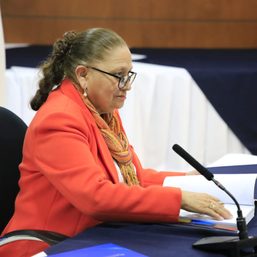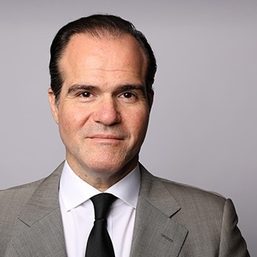SUMMARY
This is AI generated summarization, which may have errors. For context, always refer to the full article.

MANILA, Philippines (UPDATED) – Former Supreme Court Associate Justice Adolf Azcuna has been elected as member of the International Commission of Jurists (ICJ), Malacañang announced on Saturday, August 30.
He is the first Filipino jurist to hold the post, and will join 59 other eminent judges and lawyers from other countries who compose the commission.
“He brings his wealth of experience and wisdom to the ICJ. We are confident that ICJ will benefit from his long years as a jurist and as a trainor of judges,” Presidential Spokesman Edwin Lacierda said.
Honor for the Philippines
Azcuna is competent and qualified for the position as an “acknowledged expert on public international law,” Father Ranhilio Callangan Aquino, dean of the San Beda Graduate School of Law, told Rappler.
“It should be a matter of national pride. It shows that we Filipinos are not far behind in our knowledge of international law,” said Aquino, who worked closely with Azcuna.
Ateneo School of Government Dean Tony La Viña also welcomed Azcuna’s election: “It’s really good that we have Justice Azcuna – definitely a brilliant international lawyer – as a commissioner. It’s also an honor for the Philippines.”
Azcuna was the chancellor of the Philippine Judicial Academy before he was elected to the ICJ. He also served as an associate justice of the Philippine Supreme Court from 2002 to 2009. Azcuna also took part in the crafting of the 1973 and 1987 Philippine Constitutions.
Strengthen justice systems
Azcuna will serve a 5-year term as an ICJ commissioner based in Manila beginning August.
ICJ commissioners, using their legal expertise, help strengthen national and international justice systems with the following aims:
- Ensure the progressive development and effective implementation of international human rights and international humanitarian law
- Secure the realization of civil, cultural, economic, political and social rights
- Safeguard the separation of powers
- Guarantee the independence of the judiciary and legal profession
“The ICJ is an excellent organization. I once worked for it for a training mission in Cambodia in the 1990s where we trained the first judges of that country after it’s peace agreement,” La Viña told Rappler.
The ICJ played a leading role in pushing for the adoption of the Rome Statute, which established the International Criminal Court in 1998. – Rappler.com
Add a comment
How does this make you feel?


![[WATCH] Try This: Empanada Salteña from Argentina](https://www.rappler.com/tachyon/2023/04/try-this-empanada-saltena-argentina.jpg?resize=257%2C257&crop=765px%2C0px%2C1037px%2C1037px)


There are no comments yet. Add your comment to start the conversation.